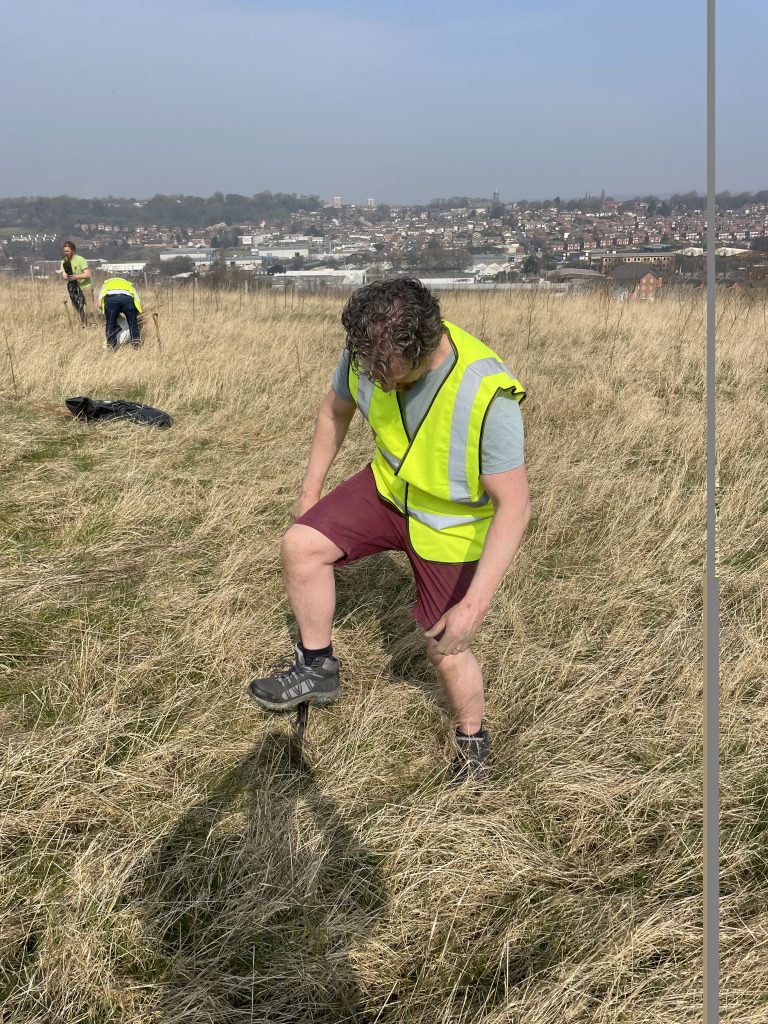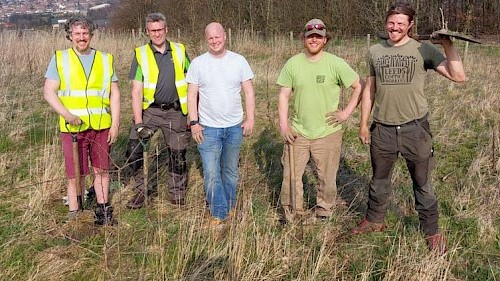A Yorkshire manufacturer of flood defence products donated profits to a local co-operative to support a natural flood management project in Leeds.

Andel donated the money to Leeds Coppice Workers, a co-operative committed to restoring and managing neglected and underused woodlands specifically for a ‘slow the flow’ project that combats rainwater runoff which can lead to flooding downstream.
The donation funded fascines – bundles of small wood, or brash, staked in the ground and used to strengthen hillsides and riverbanks.
A group of employees at the Yorkshire company, including directors, also recently spent a day planting one thousand trees in Beeston Royds, South Leeds.
As well as slowing heavy rain and reducing the risk of flooding downstream, planting trees removes and stores carbon from the atmosphere, enhancing air quality for the local and wider population, improving the urban heat island effect by reflecting sunlight and providing shade.
Andel was founded in Marsden in 1992 and has grown to become a global leader in leak detection, environmental protection systems and flood defence.
The Barnsley-based SME recently moved to larger, more carbon-neutral premises in Dodworth and has developed an impressive customer base that includes the Houses of Parliament, The Pentagon, Hong Kong International Airport and Google.
Andel supplies its unique Floodline® leak detection services to businesses worldwide to allow them to take early action to prevent damage, reduce disruption and limit any loss and recently joined Nexus innovation hub at Leeds University to develop revolutionary flood barriers in Leeds.
Commercial director, Mark Harris, said: “We have donated our time and money to Leeds Coppice Workers to support them in trying to reduce the flow from the uplands into the river.
“Two years ago, we visited the National Flood Forum in York and heard from those directly affected by flooding. They told us that most focus has been on protecting buildings, but there is a critical need to keep the water where it lands – on the hills, moors, and mountains.
“Flooding starts in these places which is why we are supporting the ‘slow the flow’ movement to be part of solving the cause rather than just patching up the effect.
“Nobody is talking about flooding because of Covid-19 but it hasn’t gone away, and winter will soon be upon us again.”
Tom Coxhead, Director of Leeds Coppice Workers, said: “This year has been especially exciting for us as we are doing more than ever before in the Leeds locality as part of a ‘Slow the Flow’ project in collaboration with The Tree Council, Andel and Leeds City Council.
“The overall project has involved the planting of 2400 trees and installing fascines at three main sites: Beeston Royds, Post Hill Woods and Meanwood Valley.
This combined approach of using natural materials alongside tree planting aims to combat localised flooding which will be an ongoing challenge in a changing climate.
“It has been a real pleasure working with Andel and I’m really thankful for their support.”



